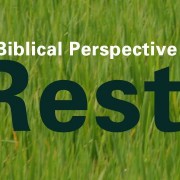“…He saved us through the washing of regeneration and renewing of the Holy Spirit.”[1]
In my last post I said that in following posts we’d be taking a look at what I’d call a “moderate” and more biblical perspective on Soteriology in contrast to the classic Calvinistic and Arminian systems of Soteriology. Specifically in this post we will be talking about regeneration- the new birth. The Bible is very clear that the person who is truly a child of God,[2] accepted and forgiven for their sins in light of the atonement of the cross of Christ being applied to them through faith is born-again. The Holy Spirit has come to indwell them[3] and sealed them for the day of redemption.[4] He has made them a new person spiritually speaking.[5]
But how does the new birth come about in a person’s life? That is really the question that is before us. Do people have enough good left in them in their fallen state to simply make a decision to trust in Christ when presented with the gospel message apart from any divine enablement to do so as Pelagians teach? Is a person born-again in a moment in time because by exercise of their own free-will they put their faith in Jesus’ work performed in their behalf on the cross as Arminians would contend? Does God sovereignly make people born-again before they exercise or express faith in Jesus as Calvinists would say? Or is there another way in the midst of these approaches to answering this question that gives the best account for the most biblical passages that deal with the issue at hand?
Arminianism and Calvinism on Depravity
Pelagianism is generally rejected by orthodox Christians. So we won’t specifically deal with that system of thought in this post other than to say up front that what is often flippantly termed “Arminianism” today is truly Pelagianism when you consider primary manuscripts written by the architects and proponents of these systems. So let’s shift our focus to the Arminian and Calvinistic answers to our question. We will start by stating the Arminian and Calvinistic views of the depravity of mankind. The Arminian position (or Remonstrance if you like) was originally articulated by Jacobus Arminius (16th-17th Century). Arminius taught in regard to human depravity that “In this [fallen] state, the free will of man towards the true good is not only wounded, infirm, bent, and weakened; but it is also imprisoned, destroyed, and lost. And its powers are not only debilitated and useless unless they be assisted by grace, but it has no powers whatever except such as are excited by Divine grace.”
To be fare, I did not represent the Calvinists as well as I could have in my descriptions of some of the five points in my last post. Some dear and close Calvinist friends pointed these spots out to me in regard to my last post and I want to remedy those mistakes here lest I inadvertently create a straw man to argue against in dealing with these subjects. So in putting forth the Calvinistic view of the depravity of man (a view not drastically different from Arminius’ own view described above) allow me to quote from a classic Calvinist confession on the subject- the London Baptist Confession of 1689:
“As the consequence of his fall into a state of sin, man has lost all ability to will the performance of any of those works, spiritually good, that accompany salvation. As a natural (unspiritual) man he is dead in sin and altogether opposed to that which is good. Hence he is not able, by any strength of his own, to turn himself to God, or even to prepare himself to turn to God.”[6]
What both of the above views have in common is that they agree on what we would theologically call Total Inability. The idea is that due to the fall of mankind human beings cannot, will not, and do not desire to trust in Jesus for their salvation apart from God liberating them from their bondage to sin and enabling them to do so.
Scriptural Affirmations of Total Inability
Both classic Arminianism and Classic Calvinism affirm Total Inability because Scripture itself does so. Consider the following verses:
John 6:44- “No one can come to Me unless the Father who sent Me draws him; and I will raise him up at the last day.”
Romans 8:7-9: “Because the carnal mind [is] enmity against God; for it is not subject to the law of God, nor indeed can be. So then, those who are in the flesh cannot please God. But you are not in the flesh but in the Spirit, if indeed the Spirit of God dwells in you. Now if anyone does not have the Spirit of Christ, he is not His.”
1 Corinthians 2:14: “But the natural man does not receive the things of the Spirit of God, for they are foolishness to him; nor can he know [them], because they are spiritually discerned.”
God Must do Something
Most orthodox believers agree in light of verses like those above that there is a spiritual blinding[7] and/or deadness[8] that must be illuminated[9] or reversed through spiritual resurrection which must take place to enable a sinner to trust in Christ. Again, the question is what is that work that God does to bring about the ability of a person to trust in Jesus and believe the biblical gospel? Arminians believe God has universally granted the ability of all individuals to choose Christ by restoring their originally God-given free will through Prevenient Grace. The doctrine of Prevenient Grace is defined well by the Church of the Nazarene:
“…through the fall of Adam they (Humans) became depraved so that they cannot now turn and prepare themselves by their own natural strength and works to faith and calling upon God. But we also believe that the grace of God through Jesus Christ is freely bestowed upon all people, enabling all who will to turn from sin to righteousness, believe on Jesus Christ for pardon and cleansing from sin, and follow good works pleasing and acceptable in His sight.”[10]
Calvinists have a different explanation of the work that God does to enable faith in the life of the sinner. They infer from verses that teach Total Inability that the work God does to produce the possibility of faith in the elect is the work of new birth (regeneration), though in truth verses describing Total Inability do not explicitly say this is so or demand such a conclusion. They contend that regeneration precedes faith. This is a logical inference they term as a logical necessity based on their view of Total Depravity. As noted in my last post on Soteriology R.C. Sproul states the Calvinist view that regeneration precedes faith this way: “We do not believe in order to be born-again. We are born-again in order to believe.”[11]
Let us be clear that if a person is born-again before they exercise or express faith in Jesus that they are saved before they exercise or express faith in Jesus. In saying they are “saved” I do not mean that they have experienced every dynamic of biblical salvation at the moment of regeneration. For example I understand that glorification is part of the wider biblical theology of salvation and that no Calvinist would claim a person is glorified at the moment of regeneration. None-the-less, God Himself equates the work of regeneration with being a literal work of salvation in the person who experiences the new birth. Consider the following statement of God in Holy Scripture:
“…He saved us through the washing of regeneration and renewing of the Holy Spirit.”[12]
Some Calvinists understanding of the weight of stating that a person is “saved” before they exercise or express faith in Jesus because of God’s secret work of regeneration in their hearts causes them to prefer that their position not be characterized this way. But as shown from scripture above this would necessarily be the unavoidable reality if regeneration does indeed precede faith. Even the great preacher and committed Calvinist C.H. Surgeon acknowledged that when people are regenerated they are saved. In his sermon Warrant of Faith he conceded, “…man, being regenerated, is saved already, and it is an unnecessary and ridiculous thing for me to preach Christ to him, and bid him believe in order to be saved when he is saved already, being regenerate.”[13] But we are saved “thru regeneration” according to the Holy Spirit inspired Apostle Paul. If advocates of the idea that regeneration precedes faith don’t like to be characterized as believing a person is saved before they exercise or express faith, it is their position that must be abandoned and not the characterization of their position by those who articulate it scripturally.
What Does God Do?
I am in the moderate middle on the exact work that God does to enable sinners to put their faith in Jesus for salvation. I am not Pelagian because I believe in Total Inability. I am not Classically Arminian because I do not believe that mankind is automatically and universally in a state of Prevenient Grace due to the merits of Christ on the cross and therefore able to make a free-will decision to trust in Jesus at any given time. I am not a Five Point Calvinist because I don’t believe the work that must be done on behalf of sinners to enable them to come to faith is the work of regeneration. I am somewhere in the midst of each of these views.
Stated positively, I believe that all people are totally depraved and as such are in a state of Total Inability when it comes to desiring or being able to actually choose to respond to the gospel message in faith. I believe that God sovereignly works in the hearts of people to bring them to a place where they understand their need to trust in Christ and understand that Jesus is the solution to their sin. I believe that upon bringing them to this place of understanding those who are “elect according to the foreknowledge of God the Father”[14] are effectively brought to faith in the gospel and repentance through the convicting and enabling work of the Holy Spirit.[15] When the sinner enabled by God heeds the command of the gospel in faith they are regenerated through faith as scripture declares, and born-again.[16]
Soteriological Moderates (which I consider myself) are able to affirm verses on Total Inability while not twisting sequential verses which describe the order of events at salvation and demonstrate that faith is the vehicle that brings regeneration into a sinner’s life, not the result of regeneration. A handful of verses that clearly demonstrate that faith precedes regeneration would include:
Ephesians 1:13-14: “In Him you also [trusted], after you heard the word of truth, the gospel of your salvation; in whom also, having believed, you were sealed with the Holy Spirit of promise, who is the guarantee of our inheritance until the redemption of the purchased possession, to the praise of His glory.”
According to Paul the order of salvation goes like this: A person hears the gospel. Next, they believe the gospel. Lastly, having believed the gospel they heard they are sealed with the Holy Spirit. They hear, they believe, they receive the sealing of the Spirit. A Calvinist ordering of this might say they hear, they receive the Spirit, they believe. That is not what the verse states.
Galatians 3:2; 14c: “This only I want to learn from you: Did you receive the Spirit by the works of the law, or by the hearing of faith?… we might receive the promise of the Spirit through faith.”
Again, reception of the Spirit is through faith. Faith is not the result of involuntarily being born-again through a secret work of God in the heart.
John 20:30-31: “And truly Jesus did many other signs in the presence of His disciples, which are not written in this book; but these are written that you may believe that Jesus is the Christ, the Son of God, and that believing you may have life in His name.”
The Apostle John, a teacher of Total Inability in John 6:44, found room in his understanding of Total Inability to believe that faith still precedes new life (regeneration). He compiled the massive account of Jesus’ life and miracles found in the Gospel of John so that his readers might believe that Jesus is the “Christ, the Son of God,” and that “believing” they may have life in His name. Note that new life through Jesus comes to a person after or through believing according to John. Again, a Calvinist rendering of this would say something like, “I write of these works of Jesus that God might give you spiritual life so that you can believe Jesus is the Christ, the Son of God.” Again, this is not what scripture says.
What I’ve chosen to call illumination (2 Cor. 4:6) must remove the hindrance of Total Inability so a person can put their faith in the gospel to be born-again. Some kind of illumination must precede faith so that we can believe. But these sequential verses demonstrate clearly, and I believe irrefutably, that faith precedes regeneration. Such a picture is portrayed in Acts 16:14:
“Now a certain woman named Lydia heard [us]. She was a seller of purple from the city of Thyatira, who worshiped God. The Lord opened her heart to heed the things spoken by Paul.”
At the moment of this woman’s conversion “the Lord opened her heart” to enable her to believe the gospel Paul was preaching. Upon opening her heart she was able to “heed” or respond to the gospel Paul preached.
Nagging Questions
A defining moment in my position on the order of salvation came when I began to think about how Old Testament saints were saved, or counted righteous before God. Most evangelicals believe that the gift of regeneration is a special work of God which He performs in His people during the New Testament age alone. If the Calvinist is right and regeneration must occur in a person’s life before they can exercise saving faith in the gospel, how is it that Abraham “believed God and it was accounted to him for righteousness” if he was never regenerated?[17] To be clear, Scripture tells us that the thing Abraham “believed” (or put his faith in) so as to be accounted righteous before God is nothing less than the Gospel!
Galatians 3:8-9: And the Scripture, foreseeing that God would justify the Gentiles by faith, preached the gospel to Abraham beforehand, [saying], “In you all the nations shall be blessed. So then those who [are] of faith are blessed with believing Abraham.”
Indeed it is not only Abraham who was able to respond to God’s promises in faith apart from being regenerated, but Hebrews chapter eleven lists a mountain of Old Testament (and therefore unregenerate) saints who somehow were able to believe in the promises of God looking forward to the cross in a saving way.
So here’s the issue: I believe that Abraham was in a state of Total Inability. I believe that I (in the New Testament age) am in a state of Total Inability. God did something in Abraham that was effective and sufficient to enable him to have saving “faith” in the promises of God that was not regeneration! And yet, though I am no more dead in my sin than Abraham, the Calvinist would tell me that I must be regenerated or I cannot exercise or express faith in the gospel. Am I to conclude that Abraham was less bound by Total Inability than I am? Or am I to conclude that I am dead spiritually to a more intense degree than Abraham? This is inconsistent and contradictory and devastating to the idea that regeneration must precede faith.
When I’ve asked the question of how Old Testament saints were able to exercise faith apart from regeneration to advocates of the doctrine that regeneration precedes faith I have yet to see them answer how this can be. They end up affirming the moderate position by saying things like, “Well clearly God had to do something even though it wasn’t regeneration.” To which I say, ABSOLUTELY! And I would contend that it is the same thing He does to enable people to come to saving faith today. He works in us to enable the response of faith to the gospel. Upon our response of faith to the gospel we are born-again. Call that work of enablement what you will. I’ve chosen to call it illumination. What’s clear is that while a sovereign work of divine enablement must precede faith, faith most certainly precedes regeneration. Until next time…
[6] A Faith to Confess: The Baptist Confession of Faith of 1689
[9] John 12:32; 16:7-11; Acts 16:14
[10] Nazarene Manual. 2005-2009
[11] Sproul, R.C. Chosen by God. Page 73.
[12] Titus 3:5b Emphasis Added
[13] Spurgeon, C.H. Warrant of Faith
[17] Genesis 15 6 quoted in Galatians 3:6 NKJV












